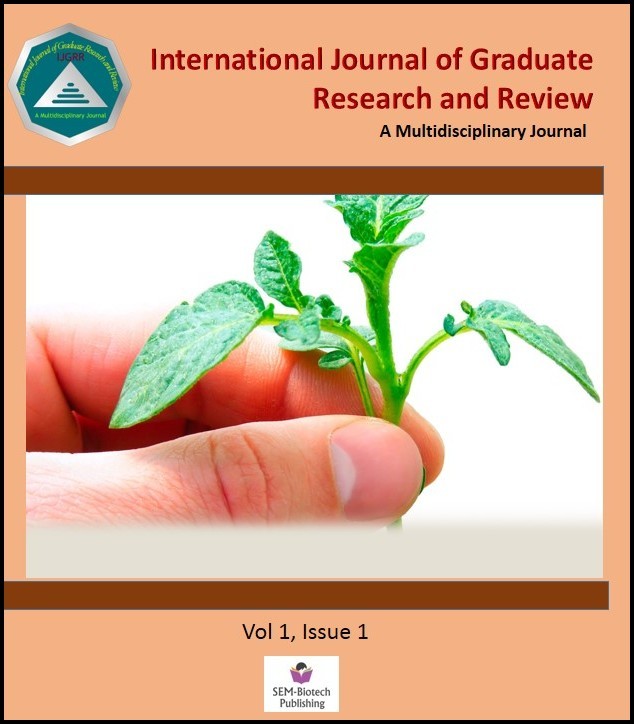





Biofertilizer: A Next Generation Fertilizer for Sustainable Rice
Production
Bhishma Raj Dahal1*, Subash Bhandari1
1Agriculture and Forestry University, Rampur, Chitwan, Nepal
Production
Bhishma Raj Dahal1*, Subash Bhandari1
1Agriculture and Forestry University, Rampur, Chitwan, Nepal
Abstract
Adequate supply of nutrient is required for optimum crop production; the present scenario of crop production rely on chemical fertilizer. Synthetic fertilizer has prodigious amount of threats to environment and healthy food production. Nepal is importing chemical fertilizers thus Nepalese farmers are facing many problems for timely supply of chemical fertilizers. More than sixty percent of Nepal comprises of hilly regions, transportation in a hill is difficult and expensive due to lack of well-developed road networks. Chemical fertilizers reduce productivity and fertility of soil in long term and cause serious threats to human health and environment. Biofertilizers are biologically active cells or strains of latent cell which upon inoculation improves nutrient fixation and absorption. Biofertilizer has gigantic potential for improving plant nutrition by substituting chemical fertilizers. Biofertilizers are eco-friendly and has tremendous positive impact in yield of crops. Multiplication and distribution of biofertilizer do not require sophisticated infrastructure, multiplication is possible even at farmer's level. Biofertilizers (BGA, Azolla-anabaena, Mycorrhiza and Plant Growth Promoting Rhizobacteria) could be alternative to chemical fertilizer as it increases productivity, soil health and fertility. This review has highlighted the role of bio fertilizers in improving physical and chemical properties of soil in rice field, improving yield of rice by increasing nutrient fixation and absorption.
Keywords: Biofertilizer; BGA; Azolla-anabanae; Mycorrhiza; Plant Growth Promoting Rhizobacteria
Adequate supply of nutrient is required for optimum crop production; the present scenario of crop production rely on chemical fertilizer. Synthetic fertilizer has prodigious amount of threats to environment and healthy food production. Nepal is importing chemical fertilizers thus Nepalese farmers are facing many problems for timely supply of chemical fertilizers. More than sixty percent of Nepal comprises of hilly regions, transportation in a hill is difficult and expensive due to lack of well-developed road networks. Chemical fertilizers reduce productivity and fertility of soil in long term and cause serious threats to human health and environment. Biofertilizers are biologically active cells or strains of latent cell which upon inoculation improves nutrient fixation and absorption. Biofertilizer has gigantic potential for improving plant nutrition by substituting chemical fertilizers. Biofertilizers are eco-friendly and has tremendous positive impact in yield of crops. Multiplication and distribution of biofertilizer do not require sophisticated infrastructure, multiplication is possible even at farmer's level. Biofertilizers (BGA, Azolla-anabaena, Mycorrhiza and Plant Growth Promoting Rhizobacteria) could be alternative to chemical fertilizer as it increases productivity, soil health and fertility. This review has highlighted the role of bio fertilizers in improving physical and chemical properties of soil in rice field, improving yield of rice by increasing nutrient fixation and absorption.
Keywords: Biofertilizer; BGA; Azolla-anabanae; Mycorrhiza; Plant Growth Promoting Rhizobacteria
Full text: PDF
Int. J. Grad. Res. Rev.Vol-5, Issue-1: 1-5



